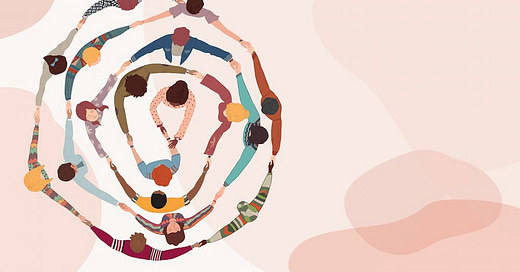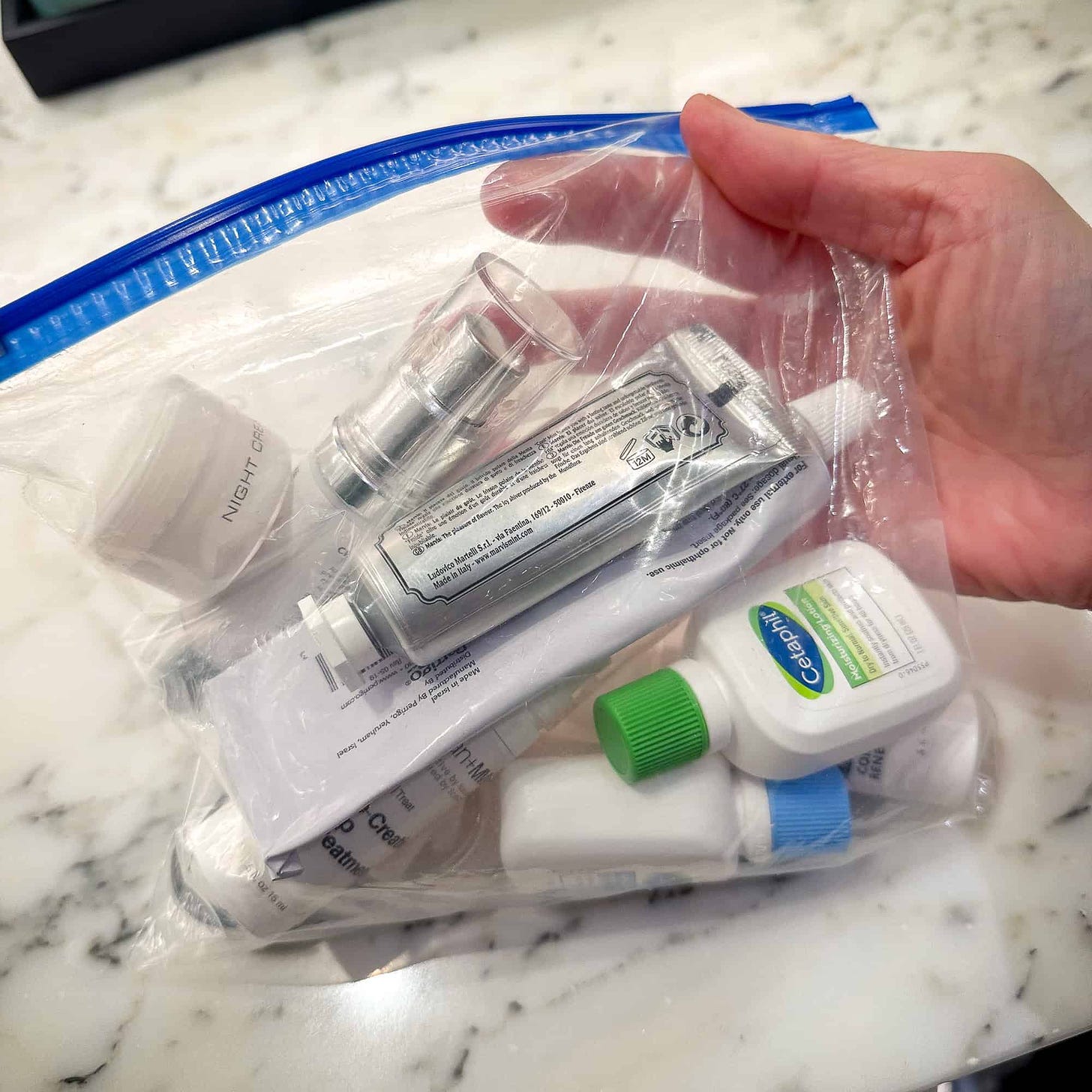Hello my loveliest of lovelies. This has been a toughy to get out.
I was busy yesterday afternoon, and didn’t look at my phone until after 4.30pm. By then I had no less than eleven text messages and missed calls from people asking if both myself and my son were safe.
Westfield Bondi Junction is my local, and being a Saturday, it’s not unreasonable for people to imagine that I could have been there. And to be clear, this is not a story about me - merely a jumping off point to speak about many.
We all know someone (or someone’s someone) who either was there yesterday, or could have been there. As I watched the media agencies set up camp so that they could talk, eat, piss and shit without stopping the all important coverage of what had happened (when it was clear they had no idea what had happened - yet had to regurgitate it 75 different ways to ‘just keep talking’). What disturbed me the most (apart of course from the horrendous event itself) was the way the media persisted in trying to get horrific, grotesque details out of witnesses who were clearly in total states of shock.
These people have been deeply, profoundly traumatised. Even when it was clear they were in shock - almost beyond the power of speech - the questions still were hammered at them. It stank of insensitivity and sensationalism. Just Yuk!
Which brings me to the point of why I started writing this afternoon. Trauma. To be human is to have experienced trauma - noone escapes this all too little understood human condition. And yet, research is shedding more and more light on the subject.
Trauma: Collectively Speaking
Whilst there are many different types of trauma (for another day), in the aftermath of yesterday’s events, I wanted to shine a light on ‘collective trauma’
Collective trauma, in essence, is the psychological upheaval experienced by groups in response to a shared traumatic event. From wars and pandemics to terrorist attacks and natural disasters, these events transcend individual suffering, shaping our collective psyche and influencing our societal fabric.
When we're faced with events as jarring as the attacks at Bondi Junction Westfield, it's crucial to understand the dynamics of collective trauma and its profound impact on us all. This form of shared trauma isn't just about individual distress; it's a seismic force that reverberates through our entire community.
So, what does it mean for us when our community undergoes such trauma? How do we navigate the aftermath and, more importantly, how do we move forward and heal?
The thing to understand about collective trauma, is that doesn’t become a simple footnote in our history. It's a defining chapter that shapes our present and future. From policy changes to personal decisions, its impact is far-reaching and enduring. Who remembers travel before this?
Understanding Collective Trauma:
Collective trauma is the psychological distress experienced by entire cultures, communities, or large groups in response to a shared traumatic event.
It's characterized by a collective effort to construct meaning from the trauma, helping individuals contextualize and make sense of what happened.
Common Causes of Collective Trauma:
Any event that affects a large group of people can trigger collective trauma, leading to societal shifts and personal upheavals.
Examples include wars, pandemics, terrorist attacks, and natural disasters, among others.
Effects of Collective Trauma on Mental Health:
Collective trauma can manifest in various mental health conditions, including post-traumatic stress disorder (PTSD), anxiety disorders, low self-esteem, and existential crises.
Its impact can linger for years, affecting individuals and communities alike.
Influences on Communities:
Collective trauma can foster xenophobia, perpetuate generational trauma, breed distrust, and spur violence within communities.
However, it can also stimulate creativity, strengthen community bonds, and drive positive social change.
Healing from Collective Trauma:
Healing from collective trauma requires reaching out for support, refraining from excessive exposure to distressing content, and finding resilience in adversity.
By fostering bonds with family and community, redefining purpose, and embracing altruism, individuals and communities can embark on a journey of healing and growth.
With the countless horrors that go on around the world and that are inflicted on innocent people daily, the privilege of living in a safe country/state/city/area/suburb or street even - is not lost on me. I know that for some - what happened yesterday in Sydney’s Eastern Suburbs might seem diminutive when compared to other mass killings - but hey - it’s not a competition.
This sheltered - dare I say even ‘cloistered’ - community has been hit at its very core - safety and shopping. Surely two things we take for granted as part of our lives. There will be fallout, and people will be impacted - possibly far more than the glossy ‘return to retail’ PR that inevitably will follow will take into account.
A few things to keep in mind in the coming weeks:
Seek Support: Don't hesitate to reach out for assistance. Share your feelings with trusted individuals and let them know how they can offer support. Additionally, consider seeking professional help from therapists or coaches who are trained to identify signs of PTSD and provide appropriate care.
Limit Negative Exposure: Amidst the COVID lockdowns, many found themselves endlessly scrolling through distressing news online. While it may seem harmless, this habit can significantly impact your mood. Resist the temptation to spend excessive time on social media, as it can lead to feelings of hopelessness in the long run.
Find the Bright Side: Despite the challenges, every traumatized community has a common thread – resilience. Crises disrupt the norm, but they also offer opportunities for growth. While it's natural to mourn losses, actively seeking out silver linings can help preserve your mental well-being as you navigate the path forward.
In essence, navigating collective trauma demands both introspection and collective action.
As always lovelies - thankyou for reading. Look after yourselves and each other. We are all we have. Much Love.
Nathy





Such an important topic, Nathy - trauma. Thanks for this thoughtful post.